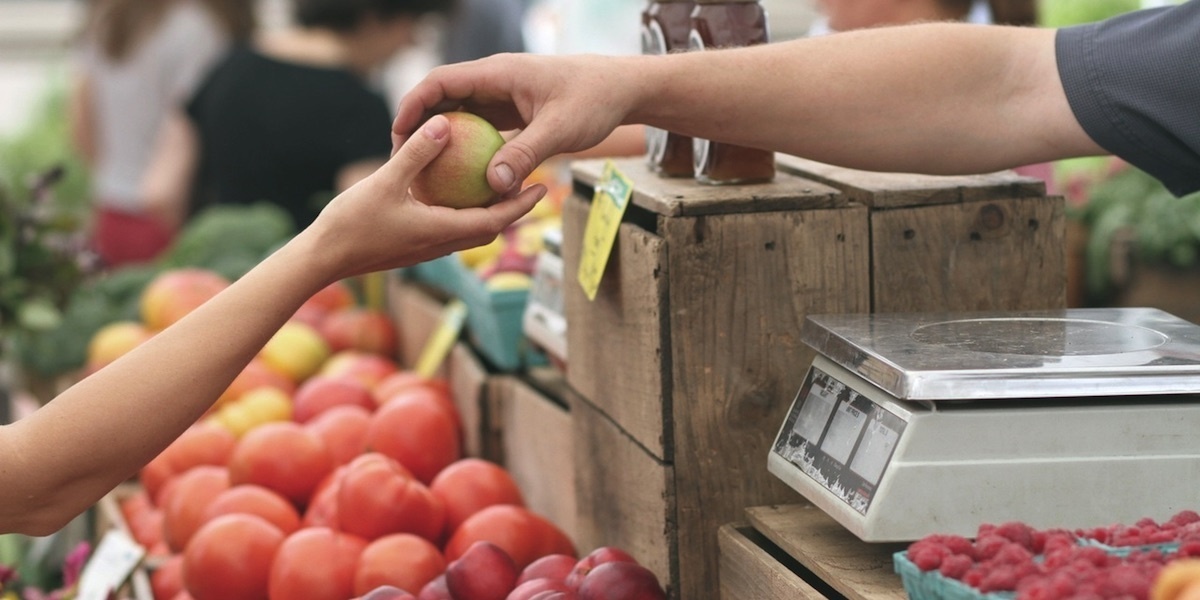

On
World Food Day, observed every year on Oct. 16, we can all do our part to combat global hunger and malnutrition.
The United Nations’ second Sustainable Development Goal calls for ending world hunger by 2030 and
urges profound interventions from governments, businesses and individuals to help feed the growing number of hungry people in the world.
Last year, the UN’s Food and Agriculture Organization (FAO) found that chronic undernourishment grew to
821 million, or one in every nine people worldwide. At the same time, adult obesity is worsening (especially in North America) with more than one in eight adults in the world considered obese.
“Conflict, extreme weather events linked to
climate change, economic slowdown and rapidly increasing overweight and obesity levels are reversing progress made in the fight against hunger and malnutrition,” the FAO said.
World Food Day – marked each year on 16 October – highlights the need to step up efforts to end #hunger & malnutrition.
821 million people suffer from chronic hunger. At the same time, 1.9 billion people are overweight,including 672 million obese adults. #WFD2018 | #ZeroHunger pic.twitter.com/QvVPSM7Dfq
— José Graziano da Silva (@grazianodasilva) October 11, 2018
It may seem like a daunting task to reverse this trend, but the FAO advises
four simple ways you can make a positive difference and help achieve zero hunger:
1. Don’t Waste Food. “If you have leftovers, freeze them for later, or use them as an ingredient in another meal. When you eat at a restaurant, ask for half a portion if you’re not feeling too hungry, or take your leftovers home,” the FAO says.
- EcoWatch suggestion: The World Wildlife Fund advises meal planning so you only get the ingredients you need, and learning how to navigate misleading “best buy,” “sell by” and “best before” labels with the FoodKeeper App to learn more about food freshness and storage options. Consider anti-food waste companies such as Misfit Juicery, which makes cold-pressed juice from fruit and veggie scraps and “ugly” produce and Copia, which picks up your surplus foods and donates it to those who need it. Try composting your food waste instead of throwing it out.
2. Produce More, With Less. “With a growing population expected to reach in 9 billion in 2050, farmers should find new, more productive ways to farm food and diversify their crops. Using an integrated farming approach will not only help farmers increase their crops’ yield, and thus their profits, but can also improve the quality of their farmland,” the FAO says.
- EcoWatch suggestion: Although that piece of advice is geared toward farmers, it can apply to you as well. Use your dollars on food producers and farms that practice organic, sustainable or regenerative agriculture. The HowGood app rates products on environmental, health and trade impacts by sourcing information from more than 350 organizations, including Humane Certified, Rainforest Alliance and Fair Trade USA. If it’s available to you, choose locally sourced and seasonal products, shop at farmers markets and consider joining a CSA (community-supported agriculture) program.
3. Adopt a More Healthy and Sustainable Diet. “Life is fast-paced and trying to fit in preparing nutritious meals can be a challenge if you don’t know how. Nutritious meals don’t have to be elaborate. In reality, they can be cooked in a quick and easy way while using only a few ingredients. Share your quick nutritious recipes with your family, friends and colleagues and online. Follow sustainable chefs and bloggers online to learn new recipes or talk to your local farmer to see how they cook their produce at home,” the FAO says.
- EcoWatch suggestion: Eat fewer animal products. As we recently reported, researchers recommend “flexitarian” diets that eschew meat in favor of plant-based foods. Animal products are a major contributor to climate change, require massive amounts of farmland that drives biodiversity loss and uses up lots of fresh water. The nitrogen and phosphorus from fertilizer also pollutes land and water.
4.
Advocate for #ZeroHunger. “Everyone has a role to play in achieving #ZeroHunger, but countries, institutions and people need to work together to reach this goal. Establish ZeroHunger partnerships, share knowledge and resources, develop innovative strategies and discover new opportunities to contribute to the fight against hunger. Raise the topic with your local and national authorities, promote related educational programs in your community and amplify the #ZeroHunger message through your network.”
- EcoWatch suggestion: Support the World Food Programme, which pledges to end hunger, achieve food security, improve nutrition and promote sustainable agriculture. You can also organize a meal packaging event, donate extra food from your pantry and be a voice in the fight. Share this video on social media to inspire action for #ZeroHunger. As the FAO touts, “our actions are our future.”
World Food Day 2018 – Our Actions are our Future
www.youtube.com

 233k
233k  41k
41k  Subscribe
Subscribe 